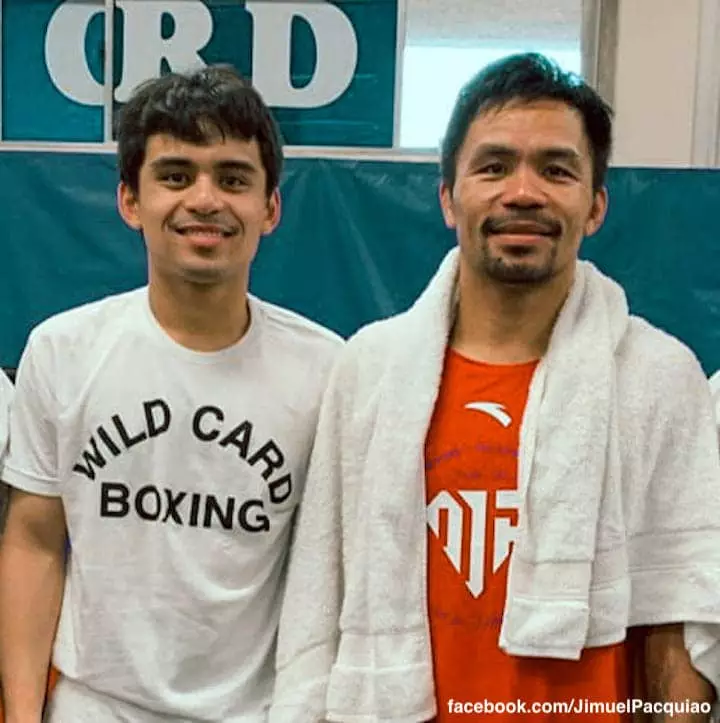In the world of boxing, the lineage of fighters often treads a precarious path—succeeding in the ring can be as challenging as stepping into the ring itself. As children of legendary boxers emerge into the sport, they face the formidable task of carving their own paths while standing in the long shadows cast by their parents. This phenomenon has been observed repeatedly; many offspring of boxing icons strive to replicate or transcend their predecessors’ achievements. The fact is, while several have succeeded—like Laila Ali, Cory Spinks, and Wilfredo Vazquez Jr.—others have faltered under the immense pressure of high expectations. Names such as Marvis Frazier and Ronald Hearns serve as reminders of the difficulties faced by these second-generation boxers.
Enter Manny Pacquiao Jr., the son of the boxing aficionado and icon, Manny Pacquiao. As he navigates the early stages of his boxing career, the question arises: can he rise above the heritage of greatness that precedes him? At 23 years old, with a record of 4-4 as an amateur, the goal of transitioning into professional boxing lies within his grasp. Yet, the magnitude of his father’s legacy looms large, a benchmark that is lofty and, for many, unattainable.
Being nurtured by the example of one of the sport’s all-time greats sets the stage for Pacquiao Jr. to think big. Currently training under Marvin Somodo, he is diligently preparing for the day when he will make his professional debut. Somodo has expressed optimism about Juniors potential, indicating that increasing skill and progressively challenging sparring sessions with world-class fighters are part of the training regimen. This approach is vital; the transition from amateur to professional boxing requires not just skill but also an ironclad mental fortitude.
However, it’s essential to temper enthusiasm with realism. Despite the appearances of preparation and hard work, history shows that many aspiring fighters, regardless of potential or fame, fail to deliver once they turn pro. Pacquiao Jr.’s story could easily follow a twin path; there are no guarantees when it comes to success in a sport that is as unpredictable and demanding as boxing. The allure of professional boxing is intoxicating, but the bitter truth is that it can chew up and spit out the unprepared.
One of the most critical aspects contributing to a fighter’s success is their hunger to win, an insatiable desire to prove themselves. This “hunger” has a unique character and intensity that depends on individual circumstances. Manny Pacquiao’s rise is a penny tale of perseverance against dire odds; he was literally impoverished when he began boxing. His struggle propelled him to greatness as he fought not only for titles but to escape financial turmoil.
In contrast, we examine the life of Manny Jr. As the son of a multi-division world champion, he has grown up in a world of privilege. While having access to elite training facilities and expert guidance, the question remains: does he harbor the same drive and ambition as his father? The stakes are different now; while the older Pacquiao fought for survival, his son must find motivation in ambition and personal fulfillment.
The impending debut of Manny Pacquiao Jr. showcases the duality of legacy in sports. Will the name Pacquiao be a formidable advantage or an overwhelming burden? The anticipation surrounding his anticipated foray into pro boxing is palpable, as each fight will draw comparisons with his father’s legendary career. But behind the narrative lies a young man striving to express his individuality, and that is often lost in the noise surrounding parental legacies.
As Manny Pacquiao Jr. prepares to embark on his own boxing journey, the scrutiny from fans, critics, and historians alike will only increase. The question—how far can he go?—remains unanswered but holds potential as vast and surprising as the sport itself. The road may be rocky and fraught with challenges, but whether he becomes a shining example of perseverance or a cautionary tale will ultimately depend on himself. The fight ahead is not just against opponents in the ring, but also the expectations that ride on his shoulders.

